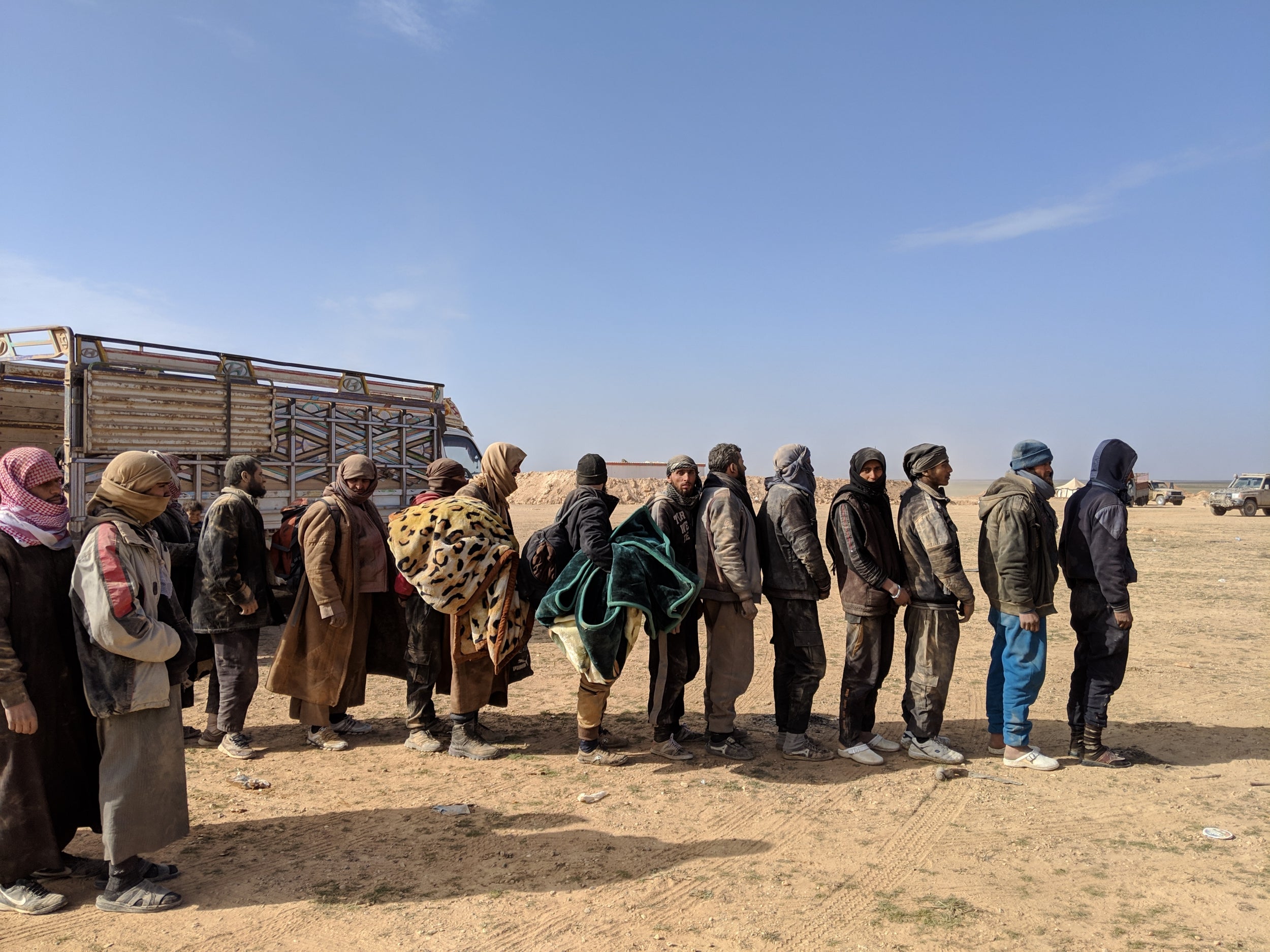Jihadists returning to UK have skills and connections to be ‘very dangerous’, says MI6 chief
Alex Younger also warns that 'military defeat of the caliphate does not represent the end of the terrorist threat that we face'

Your support helps us to tell the story
From reproductive rights to climate change to Big Tech, The Independent is on the ground when the story is developing. Whether it's investigating the financials of Elon Musk's pro-Trump PAC or producing our latest documentary, 'The A Word', which shines a light on the American women fighting for reproductive rights, we know how important it is to parse out the facts from the messaging.
At such a critical moment in US history, we need reporters on the ground. Your donation allows us to keep sending journalists to speak to both sides of the story.
The Independent is trusted by Americans across the entire political spectrum. And unlike many other quality news outlets, we choose not to lock Americans out of our reporting and analysis with paywalls. We believe quality journalism should be available to everyone, paid for by those who can afford it.
Your support makes all the difference.Isis remains a potent threat despite the imminent loss of the last enclaves of its caliphate, and the terrorist group will continue to attempt vicious attacks in Britain and elsewhere in the West, the head of MI6 has warned.
Alex Younger said that western jihadists coming back from the Middle East were a source of deep concern amid ongoing debate about Shamina Begum, who ran away to Syria to join Isis four years ago aged 15, and now wants to return to Britain.
Speaking to journalists at the annual Munich security conference, Mr Younger said that returning Isis members could be very dangerous.
Asked about the security threats to the UK posed by the returning fighters and jihadi brides, Mr Younger said: “We are very concerned about this because all experience tells us that once someone has put themselves in that sort of position, they are likely to have acquired both the skills and connections that make them potentially very dangerous.”
They also, he said, experienced extreme radicalisation. “That fact needs to be uppermost in our minds,” he said. “So as we approach this admittedly extremely complex and difficult problem, public safety is the first thing that we will consider.”
In the case of Ms Begum, Mr Younger said: “What I can’t do is comment on specific points, or specific circumstances. It follows though that we will be looking very carefully at the specific individual circumstance.
“I fully appreciate that everybody’s circumstances will be different and therefore our response should be different, and we should be taking into account the specific factors that exist.”
Mr Younger, speaking about the strategy of dealing with the returnees, said: “British nationals are allowed to go back to Britain” adding that “ It is worrying because when someone with that sort of background returns to the UK it requires a very significant level of resources to ensure they don’t present a threat to the people."
In December, Donald Trump declared that Isis had been “decimated” and the US president is soon expected to announce “mission accomplished” once the last pockets of Isis territory in Syria are recaptured by American and European-backed forces.
But Mr Younger cautioned strongly against triumphalism and stressed that the military defeat of the caliphate did not represent the end of the terrorist threat.
“You can’t use military force to kill an idea,” he said. “Daesh (Isis) is a resilient organisation. It is reorganising and essentially returning to its natural state as an asymmetric transnational terrorist organisation.
“We see it therefore morphing, spreading out. It’s doing so within Syria but also externally, and that means that we need to organise to ensure that we can deal with it, and that of course is a task with which we are familiar as this is a traditional shape of a terrorist organisation.
“We’re not triumphant because from triumphant you get hubris; so absolutely not. That reflects the important fact that while we in the intelligence community have a part of play in dealing with the most difficult and dangerous part of the terrorist threat, the reality this is a societal, generational problem that we face in the West. And it can only be addressed at that level.”
While reiterating that the end of the caliphate did not mean the end of Isis, Mr Younger said the possession of land meant that the Islamist group could boost terrorist recruitment and use the territory to create a terrorist infrastructure and organise direct threats against the West.
He said possession of land also boosted terrorist funding: “It appropriated or attracted resources which underpinned the threat against us. That’s why we were so focused on ensuring it was removed. We are very satisfied with the progress that has been made, and we’re proud of the role that we have played in that.”
Asked about the possible consequences of Mr Trump’s declared intention of pulling troops out of Syria and Afghanistan, the MI6 chief said: “These organisations exploit political failure essentially, they exploit ungoverned space to organise and grow. I’d simply observe this is of course not a new problem for us, it’s essentially been the terrorist threat ever since the ‘90s.
“The two key issues for us are to be able to penetrate those terrorist organisations notwithstanding the fact that they are in some of the most forbidding places in the world, and we do. And the second is to be able to take action, with our partners, to deal with what we find in ways that are consistent with our laws and our values.”
Join our commenting forum
Join thought-provoking conversations, follow other Independent readers and see their replies
Comments